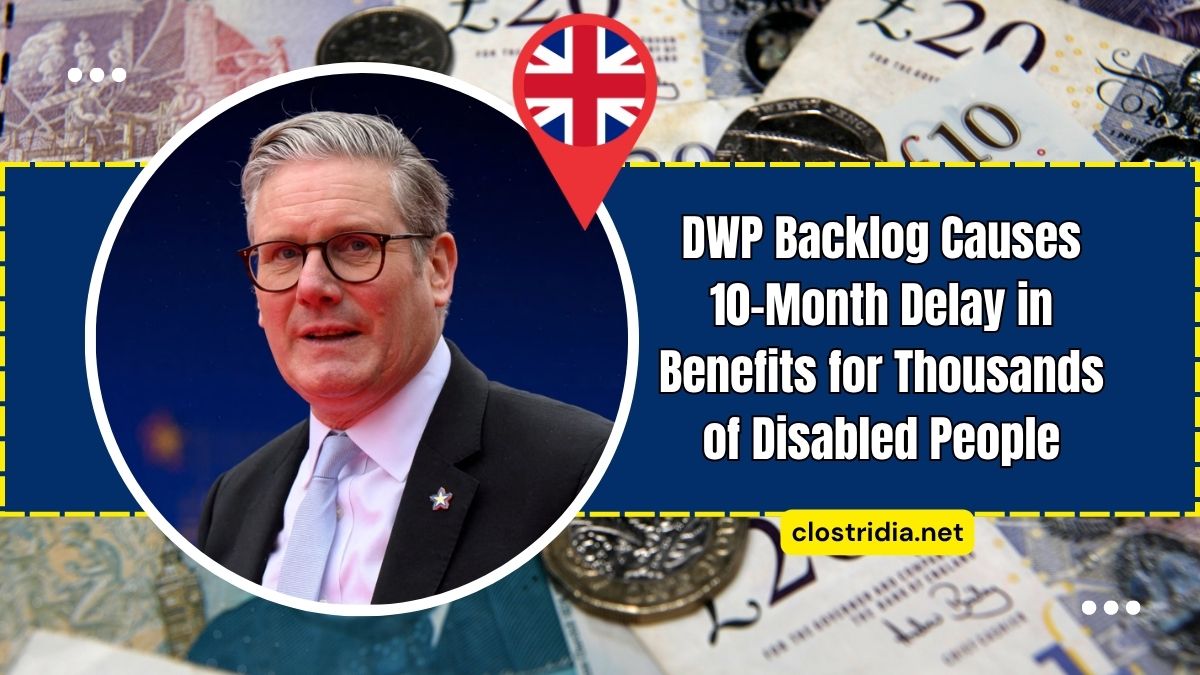Thousands of disabled individuals are facing prolonged waiting times for their disability benefits due to significant delays in the appeals process.
According to the Department for Work and Pensions (DWP), the average waiting period for Personal Independence Payment (PIP) claims has exceeded ten months.
This backlog not only hinders the timely disbursement of benefits but also puts a strain on the appeals system, which is already overwhelmed with claims.
The Lengthy Delays
On average, claimants are enduring over ten months of waiting between the initial rejection of their benefit application and the final appeal decision.
This extended period means that many applicants may end up waiting more than a year to receive the benefits they are entitled to.
This delay is particularly concerning as the DWP is working on plans to cut the number of individuals eligible for PIP.
Government’s Response to Delays
The government has justified these cuts, arguing that more people will appeal, which they claim will result in fewer people losing out on benefits.
However, this assertion relies heavily on an appeals system that is already inundated, with significant delays in processing.
In response to these challenges, DWP Minister Stephen Timms confirmed that, as of December 2023, the median waiting time for a PIP appeal was 42 weeks.
The PIP Appeals Process
The process involves multiple stages, beginning with the mandatory reconsideration (MR) phase, where applicants must request a review of the DWP’s initial decision.
Although the MR phase is typically a review of the initial decision, it usually does not result in favorable outcomes for the claimant.
The vast majority of successful claims are those that move forward to the tribunal stage after the MR phase.
Average Processing Times
- Mandatory Reconsideration (MR): Takes approximately two months on average.
- Tribunal Appeals: Average completion time for tribunal appeals exceeds seven months.
This data underscores that the majority of the delay in the overall appeal process stems from bureaucratic hold-ups, and not necessarily from the applicants themselves.
Impact of the Delays
Many claimants find the process discouraging, and for some, the delay may result in them being without essential benefits for months, even years.
Arun Veerappan, a disability advocate and PIP claimant, shared his experience with the lengthy appeals process, highlighting that the DWP often misjudges an applicant’s needs, forcing them to go through extensive paperwork and tribunal hearings.
Veerappan’s case illustrates the frustration many disabled individuals face. After applying for PIP in 2023 and receiving inadequate support, he had to undergo multiple stages of appeal.
The process spanned over 11 months before he received a favorable decision, which included backdated payments. If the government’s proposed cuts go through, individuals in similar situations will face even longer waiting times for essential benefits.
Government’s Plan for Cuts and Increased Appeals
The government’s planned cuts to the PIP threshold are set to create even more significant delays, as the number of claims and appeals will likely rise. These cuts, which reduce eligibility requirements for PIP, are expected to lead to an increased volume of appeals, further burdening the system.
According to the Office for Budget Responsibility (OBR), these changes will have behavioral effects, meaning that some applicants who would have failed to meet the new thresholds may adjust their applications to qualify, resulting in more mandatory reconsiderations and appeals.
Government’s Statement on the Issue
In defense of the proposed cuts, a government spokesperson stated that the majority of current PIP claimants will still continue to receive their benefits. The aim of the reforms, they argue, is to create a more streamlined and effective assessment process.
However, critics contend that these reforms will only increase the backlog, delays, and frustration for applicants who are already facing systemic inefficiencies.
The increasing backlog in the PIP appeals process is a serious issue for disabled individuals who rely on these benefits to meet their basic needs.
As the government moves forward with plans to cut the PIP eligibility threshold, it remains to be seen how these changes will impact the already strained system.
Claimants, like Veerappan, face lengthy waits for the benefits they are entitled to, with many needing to endure months of uncertainty before their cases are finally resolved.
FAQs
Why are PIP claimants experiencing long waiting times?
Claimants are facing delays due to a backlog in the appeals process, particularly the mandatory reconsideration and tribunal stages. The average wait time for a decision is currently over ten months.
How will the government’s proposed PIP cuts impact disabled individuals?
The cuts are expected to reduce the number of claimants eligible for PIP, but the government has argued that more people will appeal. However, this could lead to an increase in delays and the overall cost of the system.
What changes are being made to the PIP appeals process?
The government plans to introduce threshold cuts, meaning that some applicants who would previously have been entitled to benefits will now need to appeal. This is likely to lead to longer wait times for all claimants involved in the appeal process.
